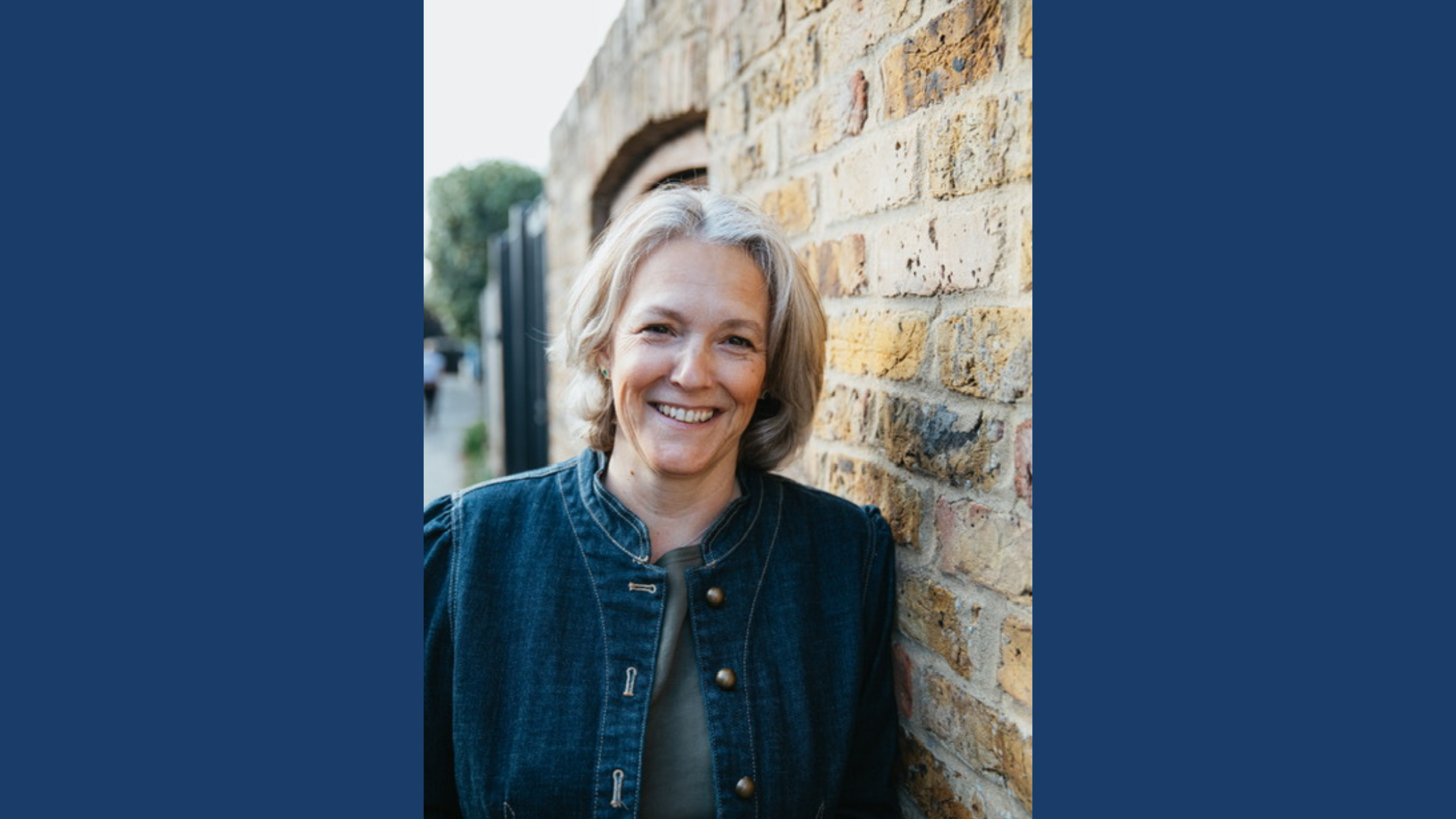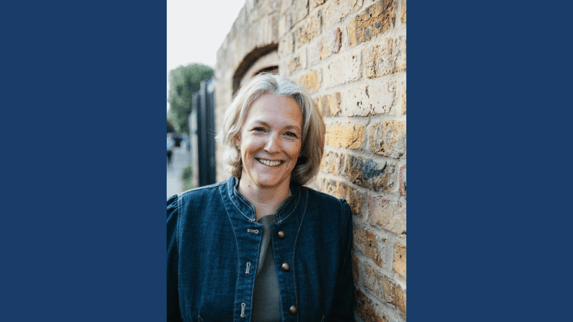For Caroline Southgate, Managing Director of Doris Jones, an Essex-based care services provider, attending the Business Growth Programme (BGP) completely changed her outlook.
The business was about eight years old back in 2019, and we had hit a point where I described it as being lonely at the top. I've got two business partners but, in terms of the main day-to-day running of the business, it was me and one person in the care team.
We had got to the point where we were making a profit, we were ticking lots of boxes, but I felt a bit lost in terms of what was next. Like a lot of people, we had put off having discussions about exit strategy and growth. We were almost taken by surprise by the success of the business because we were so busy working in it.
Inspiration
I looked at lots of options, including my own professional development, wondering whether I needed to do an MBA or some other sort of professional qualification. Then I read a book by Jamie Waller called Unsexy Business and he kept mentioning BGP as his journey, so I looked it up and thought ‘I would love to do that’.
I was looking for something that gave me some skills, some leadership ideas and also some sort of business development which was around me as a person leading this bigger team. I also wanted something for the business itself in terms of how it might grow and how it might develop, and also just to start that process of exit strategy, whatever that might look like.
First day nerves
It was better than I could have imagined. I was nervous. I remember putting my things in the car to go away to stay at this university that I’d never been to before and thinking ‘What am I doing? There's going to be all these clever people with all these amazing businesses. I don’t think I’m going to be able to do this.’ I had proper imposter syndrome, and I almost didn't go.
But, when I got there, everyone was very welcoming. It was easy to settle in and the course was a good challenge. It wasn’t easy but it wasn’t too hard, and it was academic enough to give it credibility. It felt like doing an MBA on my business.
I came away with some confidence that what I was already doing was good and with a challenge for the areas that other people thought weren’t well explained.
Peer group and tutor support
The peer group was fantastic, and the tutors were obviously people who absolutely walk the walk. They’ve done business; they’ve transformed businesses. They had total credibility.
The businesses that were there – I think there were about 21 in our cohort – every single one of them you could exchange ideas with. They were all in different sectors, but the tutors were really quick at finding the common threads. Regardless of which sector you’re in, what product you offer, what service you provide, there are things that you have in common which are business.
BGP is in an academic setting but is for non-academic entrepreneurs, and of course that's not their comfort zone. It’s very clever. It's very well-established and it's slick. It works.
It was the first time I had done anything like this. I’m a physiotherapist; I’ve never done any training in business – that’s the bit I’ve winged! And I think that’s quite common. The outcome has been much more surprising and better than I thought it would be.
Building confidence
We’ve had COVID to deal with and if I hadn't done BGP, I have to say I think I would have struggled. It gave me a whole set of confidences around my leadership style and around our processes and that helped a lot.
We were in a strong position as COVID kicked in. We had PPE supply problems and we had to spend some money to get what we needed at first, but it hasn’t hit us financially. What hit us was the different way of working and making a million decisions about infection control, insurance, health and safety regs. But I was able to say to my team ‘This is business as usual for us. We know about infection, we deal with winter bugs and flu every year. So, you just keep going and I'll work out what it is that needs to change’.
We looked at how lean we could be and we set some targets for the scheduling team around efficiency, making sure that everybody's shift is filled, which they've done really well at. Because, if you've got people on contracts to work for a certain number of hours but you don't fill their time up with visits to do, you're not very efficient. That is why most care companies use zero-hours contracts, because of how difficult and complex it is to be efficient. We work very hard to put more people onto fixed-hours contracts, but the only way to make that viable is to make sure the scheduling is efficient.
Where's the money?
When we did the session on Where's the Money?, one of the exercises was to identify your ideal customer. We sell hours of care or hours of our service. Up until I did BGP, I would have said that was the person who has the most number of hours of care, who pays the most – they’re our best customer because they pay us £1,000 a week, whereas that other person pays £250 a week.
But, when we did the exercise, it became clear that those people are not our best customers. They cost us a whole lot more in admin and communication time, and their needs are difficult to cover while ensuring they don’t have too many different people through their house, which is when you get complaints.
If someone has four visits a day and each of those visits has to be two people, that’s eight people in a day. Trying to make that eight consist of four people consistently every day of the week, 365 days of the year, is almost asking for trouble as you’re setting mismatched expectations. Those people are also the sickest people in our client base – they’re either very unwell or their health is unstable. You’ve got GPs to deal with who may not answer the phone, and social workers.
When we thought about it, we actually decided that the person that pays the most is absolutely not our ideal customer.
Identifying our ideal customer
Our ideal customer turns out to be someone who starts with us much earlier in their life. They might be 80 but a bit wobbly on their feet and they need two visits a day – one in the morning to set them up for the day and one to give them an evening meal and settle them down for the evening, making sure the house is safe.
We might have those people for five years. By year three, they might have three visits a day, and we might end up with six months of four visits a day, but the whole of that first four-and-a-half years they pay us and the job is relatively easy. They are satisfied with what they’re getting and they’re able to tell their friends and family that, so they become referrers. Their families trust us too, and so we become a trusted provider of everything they need, right the way through until they think about going into a care home.
So, we then rejigged all of our marketing materials around what those families need to see in our advertising, and we came up with a very different way of marketing.
Challenging myself
BGP was all about understanding what we were good at, looking for where the holes might be, and really challenging myself to work out what I wanted from my business and from life.
It gets quite personal. There aren't many times in your life where you're actually confronted with your own demise or your retirement, but they ask ‘How many summers have you got left that you actually want to be working, and what's this business got to make for you?’
It's changed my outlook completely. I honestly think it's life-changing.
Previously, the business was 100% of what I was doing. The business is now 80% of what I'm doing, and the rest of my business time is doing other things and developing other things. Before, I couldn't see the wood for the trees – and now I can.
Working on the business, not in it
I'm the biggest fan of BGP ever. I arrived feeling like it was almost a fluke that this business was doing what it was doing, and I left there thinking ‘I'm obviously quite good at this.’ It has made a massive difference.
It's a big generalisation, but I think women often have a very big dentable self-esteem. I don't know – I'm not a man – but my observation is that men don't behave quite the same way when it comes to self-esteem.
As a woman in business, I thought my credibility came from the fact that I was a physiotherapist. So I would base my self-esteem around my professional qualification, thinking ‘Well, people know what a physio is, and a physio that runs a care business is OK.’
But now I have absolutely no qualms about calling myself a business leader or a businesswoman. I now think I'm entitled to the title.
I've created my own website for consultancy and I've got a Fellowship from the National Institute for Clinical Excellence (NICE). I don't think I would have applied for that if I hadn't done this whole process of lifting myself away from the coalface – working on the business, not in it – and allowing myself to try and look at what else I wanted.
Personal development
One of the people on my BGP panel asked me at the end of my final presentation ‘Is this business enough for you, Caroline?’ It actually made me cry, because I thought, ‘No, not really', but I couldn't have told you that day what was missing.
But I can tell you now what I've gained:
- I'm on local and regional panels for things around business representing the health and social care sector, because I feel like I've got a voice.
- I've got an understanding of the business within the sector and actually there's a whole bunch of people in local authorities who need to hear people like me talk about how to run the business.
- I've linked people between the UK Home Care Association and Cranfield, and they're now going to run a mini BGP for home care businesses.
- I've got the NICE fellowship, which is a three-year programme looking at how they implement guidance around managing medications in the community.
I had become entrenched in what I was doing, and I'd forgotten to take a step back from it and see myself as capable of anything else. It felt like it had been a big challenge to get it where it was.
BGP taught me there are ten major things you need to look at. Eight of them were in good shape, and I came away with two areas in which we could improve and grow the business, which then allowed me some space and time to develop my own professional personality if you like.
I think that BGP was money well spent. When you first see the fees it feels like a lot, but I have absolutely got the money back in one way or another: it pays off dividends. It's well worth the money.
Download the Business Growth Programme brochure to discover more:






